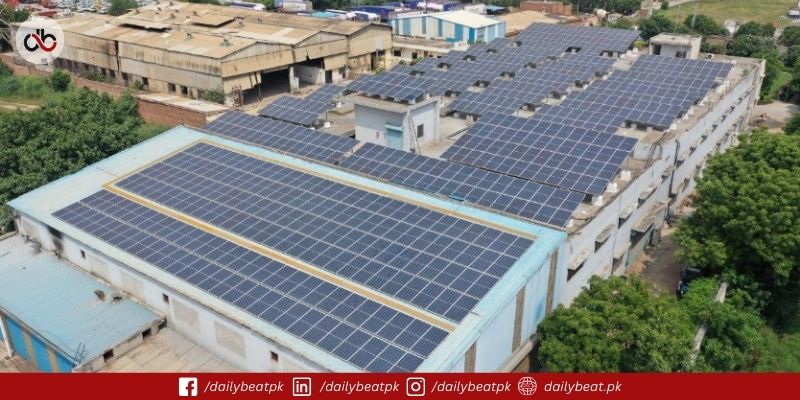The Pakistani government is preparing to present a revised solar policy to Prime Minister Shehbaz Sharif. The Power Division will soon brief the PM in a federal cabinet meeting. This updated policy introduces a major shift in how rooftop solar energy will be handled in the country.
Under the revised solar policy, a gross-metering system will replace the current net-metering mechanism. Consumers installing rooftop solar panels under the new system will sell all their generated electricity to the national grid. They will not receive credit for unused electricity as they do under net metering.
The new buyback tariff has been set at one-third of the base electricity tariff.
For example, the National Electric Power Regulatory Authority (NEPRA) has set the base tariff for FY2025-26 at Rs34 per unit. This means that new solar users will receive Rs11.33 per unit under the new scheme. However, there is a chance the rate could increase slightly to Rs13-14 per unit when the cabinet finalizes the policy.
This new direction follows the prime minister’s call for more consultation. Earlier, the Power Division had proposed a Rs10 per unit buyback rate, which was revised after stakeholder feedback. The cabinet summary now aims to provide better terms based on that feedback.
The change has sparked concern among new solar users. Existing users under the net-metering system will continue to earn Rs27 per unit for selling electricity to the grid. This difference may lead to a sense of inequality and public debate.
Those already enrolled in the PM solar scheme Pakistan will not be affected immediately. Their current contracts will stay valid until expiration. However, new users joining after July 2025 will be subject to the revised rates.
The new policy also sets a national target for solar energy. The Power Division plans to add 8,500 MW to the electricity grid under the new plan. This goal is part of the upcoming IGCEP (Indicative Generation Capacity Expansion Plan) and will be submitted to NEPRA for approval. At present, Pakistan has added around 6,500 MW through net-metering systems.
Authorities argue that the shift to gross metering is necessary. Net metering has caused financial strain, passing Rs103 billion in costs to grid-only electricity users. Last year alone, this burden led to an additional Re0.90 per unit for grid consumers. The revised solar policy aims to reduce such disparities.
What is the new solar policy 2025?
It’s a move from credit-based billing (net metering) to fixed-rate energy sales (gross metering). In net metering, users pay only for the energy they consume after subtracting what they produce. In contrast, gross metering pays for all solar power generated but charges full price for electricity consumed.
As the final decision approaches, many await how the cabinet responds. The policy is expected to shape Pakistan’s energy future while balancing affordability and fairness for all electricity users.















